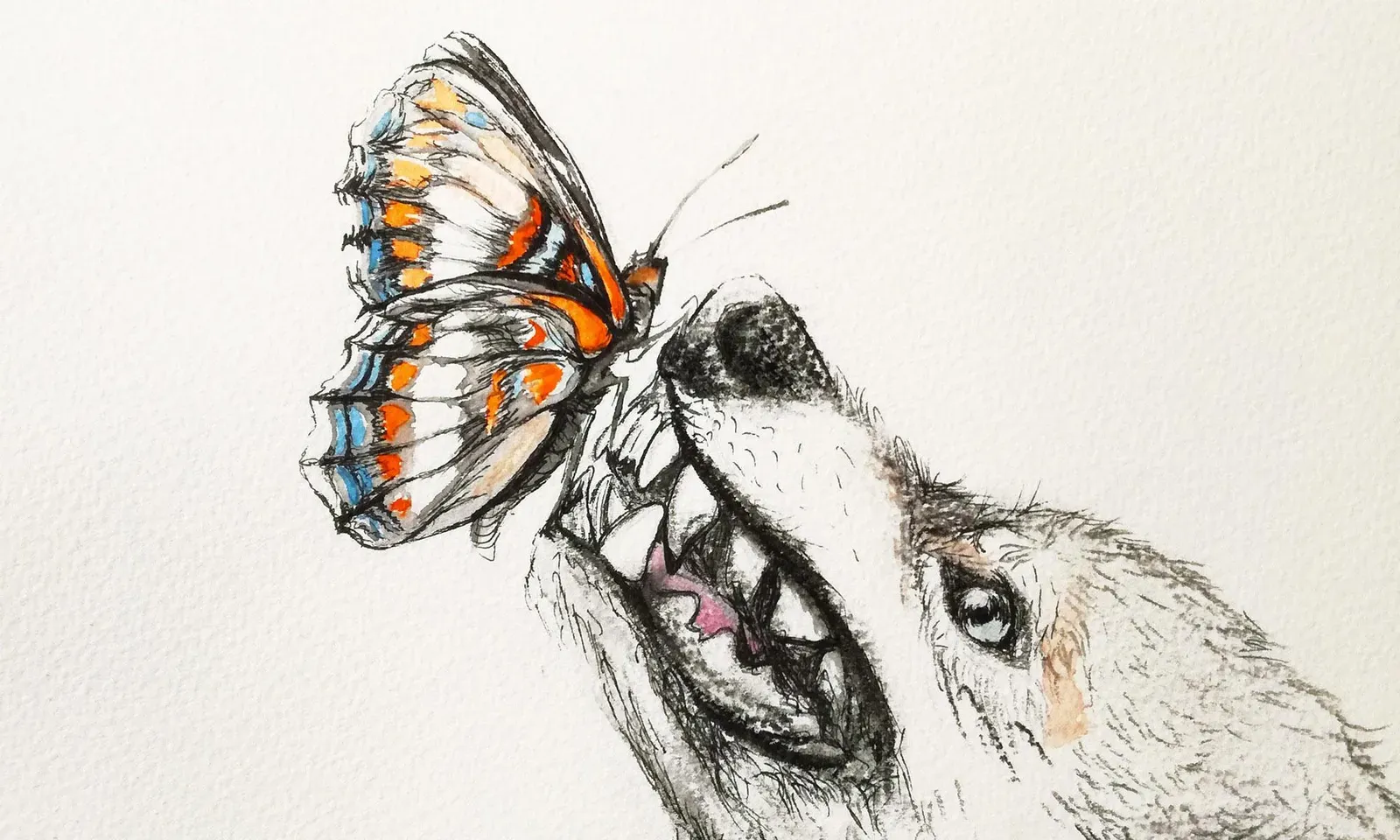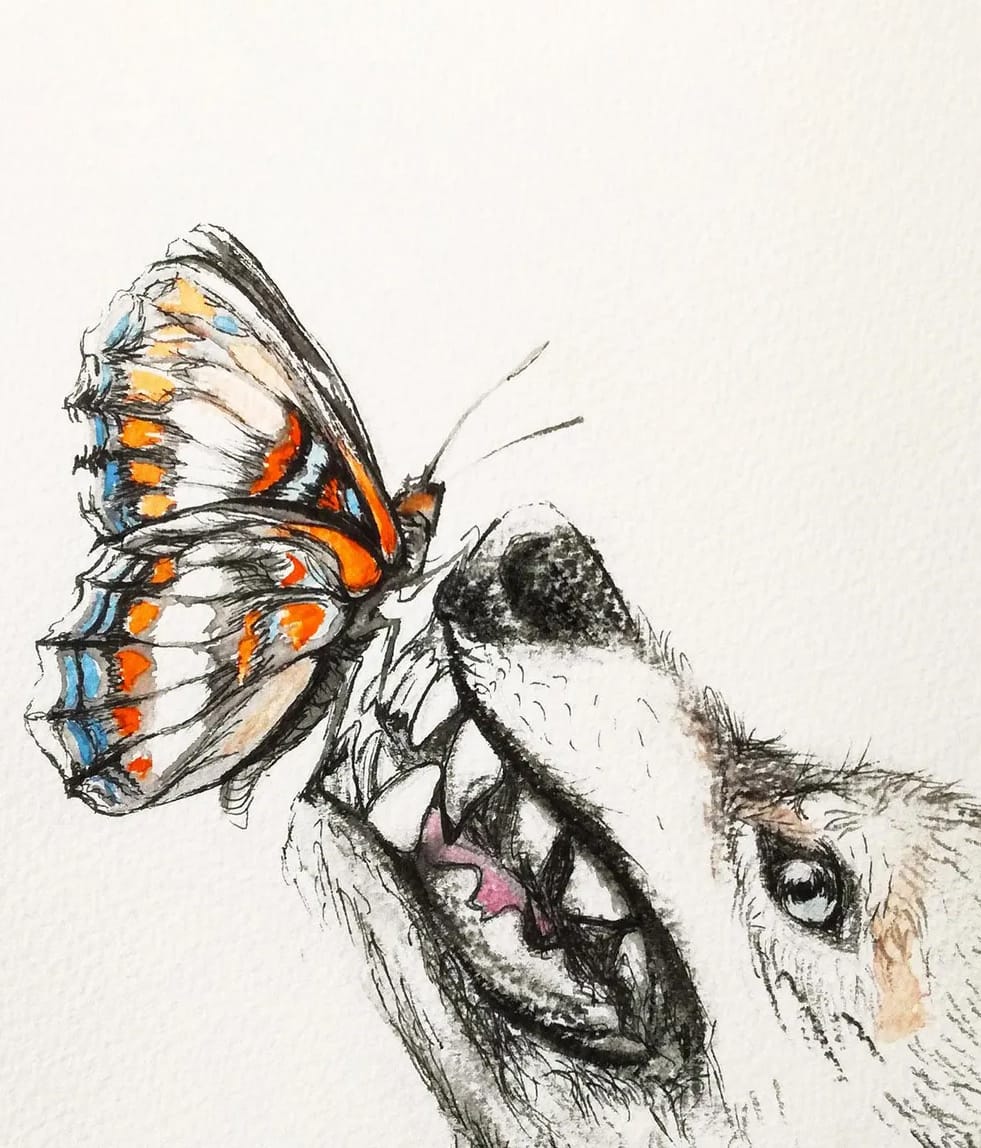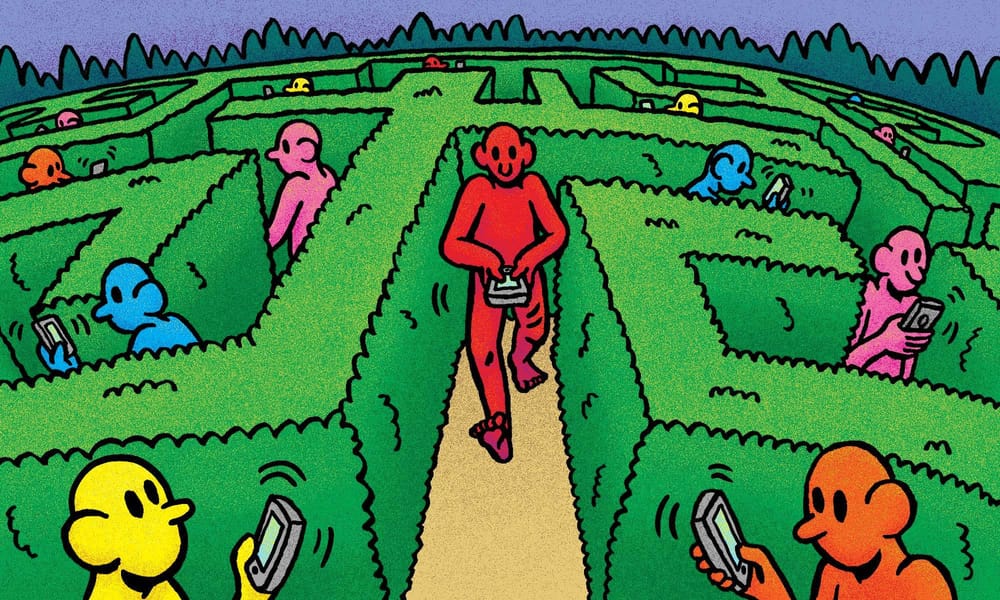
I drop the smile and it lands with a thud.
It barely makes a noise, but the noise that it makes startles me. I startle easily these days. Even though I knew it was about to fall, I never expected it to make a sound so that shocks me, but it was nothing compared to the sound that I was about to make. I was getting ready to scream. You see, I’d only recently realised that I was alive and shortly thereafter I decided I wanted to stay that way. Screaming seemed like a sensible place to start.
I was born screaming. My mother screamed first and then I followed suit and we screamed with god knows who else outside those hospital doors. It was 1993 and there were 5.5 billion people alive at the time; I’m sure many of them had good reason to scream.
I was born far away from Anita Hill on an island at the end of the world. My mother sailed there with her family to begin a new life in New Zealand when she was a child. My father was carried across as a baby. They are regular people, my parents. Which isn’t to say that nothing bad ever happened to them, nor that they never did anything wrong, but just that you wouldn’t guess what it was. Unless you knew what to look for and you weren’t afraid to find it.
If you happened to walk past our house late one Saturday night, you might have seen my dad carrying me in from the car. Seeing me sleep so seemingly peacefully in his arms, you might have even smiled at the two of us. You never would have wondered where he’d taken me. Nor would you have concerned yourself with what went on inside our house. No one else did.
I moved out of that house nearly a year ago and I haven’t seen my parents since. But no matter how far I run, I will never emancipate my story from theirs. They are my parents after all, my prologues, and so a part of me will always love them. I realised recently, however, that that part consists entirely of kin selection and Stockholm syndrome.
My parents were born in a different time. When my father went to primary school, the curriculum included the correct way to cross the street when walking with a lady. In the 1950s, ‘correct’ meant with the lady on your left so that, in the event of a car accident, you got hit first. My dad always laughed when he told me that story and I always thought I knew why, but now I’m not so sure. I had assumed that he was laughing at the absurdity of teaching little boys they ought to die for little girls. Perhaps he just laughed because, to him, crossing the street this way was common knowledge and teaching it in class seemed like a waste of time. Maybe he was just laughing because they’d neglected to mention what to do halfway across the street when the cars changed direction. I don’t know. I don’t know my dad well at all. Chances are I’ll never know why he laughed at that story, nor why he did what he did.
I can guess though.
I like hypothesising, it helps calm me down. Nothing slows my woodpecker pulse like a plausible explanation for why my dad is the way he is. I like to think (based on some statistical evidence) that it must be because someone did the same to him. But that merely begs the question, why did they do it? How far back does this go?
* * *
I don’t know my mother very well either. In a letter to a friend, she once wrote that I knew her better than anyone else, but if that’s true then it’s awfully sad. Someone should know better. Someone should know what happened to her and someone should understand why she stayed. I have a hunch—one hunch and a whole stack of books on my bedside table filled with a thousand reasons why. Bill Clinton was president, remember, and everyone loved him. Everyone loved my dad too, including my mum, and including me.
* * *
I smiled the very first time I saw my dad and he smiled back. We’ve repeated this exchange countless times since and even now, I must admit, a small smile graces my lips and my eyes soften when I think of him. They soften and melt like snow trickling down a drain in Stockholm.
The first time I smiled at my mother was one night roughly six weeks after I was born. It was 2 am and I had been crying for a while—about six weeks to be more precise. She hadn’t slept well since before I was born. Her last full night’s sleep was on New Year’s Eve; my dad had taken my siblings to my aunt’s to stay up for the countdown and they had left my mother home alone. Alone, with me quietly churning in her stomach and pressing my feet against her spleen like a cat trying to get comfortable at her expense. She had hoped to finish reading her book that night. She was reading The Amber Spyglass by Philip Pullman, the final instalment of a trilogy she had started before my sister was born. She could only read a snippet here and there in the car before the bell rang or while waiting for my sister to finish ballet class. After three years of reading, she hoped to finish it that New Year’s Eve before I was born.
She had the house to herself. She brushed her teeth and snuggled into bed and began to read…
The Dunes
MY SOUL, DO
NOT SEEK
ETERNAL LIFE,
BUT
EXHAUST [...]
… before she promptly fell asleep.
She slept with the book open in front of her and her glasses squished precariously between her breast and the bed. She didn’t stir when the van pulled into the driveway or when my dad pulled off her clothes and put her to bed as he had just done to my siblings. She wouldn’t sleep well again nor pick up the book from beside her bed for months after that, as the very next night, the first of 1993, she screamed me into existence.
During my first six weeks on earth, I did little else but sleep—sleep and cry and shit my nappy shortly after she changed me. My hardware was still forming and I hadn’t uploaded the facial recognition software yet. When I did, six weeks later, and my eyes focused in on her face, I smiled and felt, for the very first time, what it feels like to have complete power over a person.
Using nothing except the muscles in my tiny baby face, I transformed her. I flattened the furrow from her brow and ignited a light inside her eyes. It shone green and I watched it flicker and then fade when my father got home.
At six weeks old, I learnt that when I smiled, she smiled.
Intoxicated by my toothless grin, she brought me treasures, food and toys. When I dropped them, she handed them back to me; when I threw them she’d fetch, and she kept coming back even when I stopped smiling, even when I started crying.
Sometimes she came more quickly when I cried.
But there were downsides to crying. Crying deepened the crevices in her forehead and snuffed the embers from her eyes. Crying often crescendoed into chaos, because when I cried my dad would yell and then my mother would yell and the noise wouldn’t stop until somebody smiled. It was scary until I realised that I could be that somebody. I could hold the power. I captivated them with my smile, let them lull themselves to sleep singing me lullabies and, when that stopped working, I learned how to make them laugh. I learned to say ‘a wolf’ when they asked me where wool came from.
I didn’t understand why they laughed when I said that, but I understood that when they laughed they looked happy and when they looked happy they didn’t yell.
I learned to cry inwardly behind my smile. Even when inexplicable pain seared through my skin and blood stained my sheets, I sobbed silently in bed, not knowing what had scratched me during the night. I could be shaking, struggling to breathe, fighting the urge to vomit but when I heard footsteps down the hall I turned it all off like a faucet and stopped, still. I stopped crying, stopped breathing. With bated breath I waited until everyone was asleep and then I tip-toed past my parents’ room, to piss razor blades and lick my wounds in the bathroom behind a locked door.
I learned to let sleeping wolves lie and I learned how to lie; how to answer anyone who asked with ‘I’m good’, I’m fine’, ‘I’m okay’.
I smiled over clenched teeth, grinding teeth, chewing-my-lips teeth, throbbing-through-my-skull teeth. Behind what beautiful teeth I had, I hid. I didn’t scream. When I went to school my teacher read my class The Boy Who Cried Wolf and I learned that if I screamed once and was wrong, I might never be believed again. So I thought I’d save all my screaming until I was positively certain; until I was absolutely sure that what scratched me during the night was a wolf, and absolutely sure that what was happening to me was wrong. I suppose I should have guessed from Little Red Riding Hood that wolves can wear men’s clothing and slip into little girls’ beds, but I didn’t. He said that he loved me, and I thought I loved him too.
The first time I told anyone I was raped I didn’t use the word ‘rape’. I said, “something happened to me,” as if such a thing could ever just ‘happen’. It doesn’t happen. It is done. ‘Rape’ is a verb and my mother taught me that a verb is a ‘doing word’ which means that someone has to do it.
The first time I told anyone I was raped I wasn’t ready to admit who had done it and so I said I was abused. Then I whispered “Yes. Sexually.” But only after they asked.
Two years later I still struggle to say the word. I struggle to smile these days too, but that’s okay; I’m tired of smiling. My cheeks ache. Red and purple bags of skin reveal the veins beneath my eyes. Blood courses through them. I survived, I realise, and it startles me.
I am alive. Barely breathing. But with the air I can barely breathe, I inhale as deeply as I can and I scream,
“Help them.”
SUBMIT YOUR POETRY, PROSE OR ESSAYS
We invite you to find solace and expression in our dedicated section, The Solitary Pen. This is a sanctuary for you to share your deepest fears, most joyous moments or articulate anything in between. We understand the sensitive nature of certain topics, and we respect your need for confidentiality; therefore, submissions can be anonymous.
If you wish to share your writing with us, please email editor@thelovepost.global with "A Solitary Pen" as your subject line. We’ll send you our submission form.







